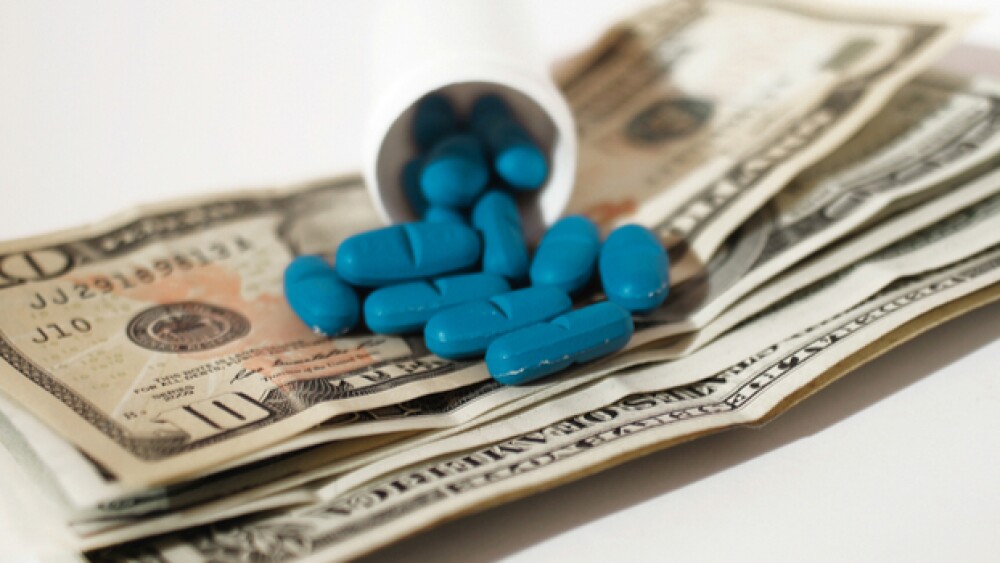With the 2020 elections looming though, and lawmakers across the country drafting legislation aimed at curbing price increases, some companies are carefully examining the landscape as they approach pricing.
On Monday, at the start of the J.P. Morgan Healthcare Conference, Cambridge, Mass.-based startup EQRx launched with a simple mission -- creating novel medicines that are more affordable for patients and for healthcare systems.
It was a shot heard round the biopharma world as the company leaped from the gates with $200 million in financing, one of the largest Series A rounds in the industry. Rising drug prices have been a growing concern across the United States, particularly as some individuals have resorted to the rationing of drugs due to the high costs, particularly notable in diabetes care and the price of insulin. Alexis Borisy, chairman and chief executive officer of EQRx, noted that his company will provide a market-based solution for the medications it develops. In EQRx’s coming out announcement, Borisy said the prices of new therapeutic approaches are “pushing beyond the limits of common sense, preventing people and society from equally benefiting from innovation.”
The launch of EQRx follows shortly after several of the major drug companies announced price increases on drugs within their pipeline, something of an annual tradition in January of each year. On Jan. 1, more than 250 drugs manufactured by different companies saw price increases ranging from 1% to 10%, with the average drug price increased by about 5%. Over the past several years, the median increase has been 9% and 10%.
With the 2020 elections looming though, and lawmakers across the country drafting legislation aimed at curbing price increases, some companies are carefully examining the landscape as they approach pricing. For example, on Tuesday, Swiss pharma giant Roche announced plans to offer its treatment for spinal muscular atrophy, should it be approved by the U.S. Food and Drug Administration (FDA), at a lower price-point than the other two options on the market. Roche’s pricing plans would make up for it being third-to-market, behind Biogen and Novartis. Roche anticipates the FDA to make a decision on its treatment, risdiplam, in May.
While that strategy may work well for Roche, there are other pricing strategies being examined by the industry. The Wall Street Journal reported that some companies are looking at value based on performance. For example, Boston-based Alnylam said it would only charge the full freight of its almost $600,000 price tag for Givlaari, an RNAi medication for acute hepatic porphyria, to insurers if a patient demonstrates a benefit similar to what was seen in clinical trials, the Journal said. Also, the company will decrease the price for insurers if they cover more patients than expected, the Journal added.
Eli Lilly has also looked into similar performance-based pricing measures, the Journal noted. Amgen has also done something similar with its migraine treatment, Aimovig.
But, most recently, the Indianapolis-based company announced plans to introduce lower-priced versions of its Humalog KwikPen and Humalog Junior KwikPen. Both insulin products will have 50% lower list prices compared to the branded versions, Eli Lilly said. The lower prices will begin to be seen in April.
Last year, Sanofi said expanded its Insulins Valyou Savings Program that would lower the price of some of its insulin treatment to $99 a month for patients who subscribe to the program. Sanofi said people in the United States can pay $99 for up to 10 boxes of pens and/or 10 mL vials per month. The Insulins Valyou Savings Program does not include Sanofi’s combination insulin product, the company noted. Sanofi said the program was used more than 52,000 times in 2019, the Journal added.
Companies are making a show of reducing prescription price costs as lawmakers are attempting to take control of drugs the government covers in insurance programs like Medicare. The U.S. House of Representatives approved a prescription drug coverage plan that gives the U.S. government the authority to negotiate prices for up to 250 of the most expensive medications covered by Medicare. The bill is unlikely to gain approval in the Senate, as members of that body are working on their own legislation with support from the White House. Additionally, President Trump and the FDA proposed a deal that would allow the importing of certain prescription drugs from Canada. Last week, BioSpace reported that the state of California is considering a plan to sell its own brand of generic drugs in an effort to get in on those cost-savings.





